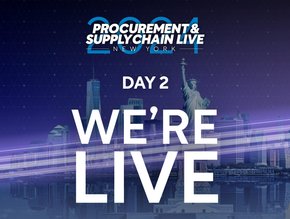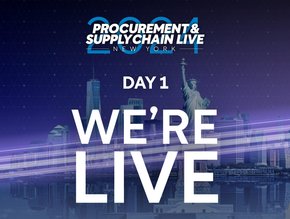How to Effectively Integrate AI into Transport and Logistics

Asparuh Koev has worked in the transport and logistics sector for more than two decades.
Over the years, he has established several companies including Sciant, an engineering services company later acquired by VMWare, and IntelliCo Solutions, which delivers IT digitisation for the transport industry.
Koev co-founded Transmetrics in 2013 and, as CEO, he combines IT and domain expertise to grow a company that is bringing truly cutting-edge technologies to the sector.
Tell us a bit about Transmetrics and its main activities
In short, Transmetrics optimises logistics service providers' planning processes by leveraging machine learning and predictive analytics. Transmetrics combines the strengths of humans and AI, ensuring the highest operational benefits and reducing the environmental impact of logistics.
How can you help firms move trucks around without losing profit?
First and foremost, we leverage their historical data to forecast future activities. Within the businesses that operate groupage or LTL shipments, it allows them to precisely forecast how many trucks they will need to transport their volumes on a given day.
We’ve had successful projects with many logistics service providers since Transmetrics started in 2013. For instance, we work with a few country divisions of DPDGroup and optimise their linehaul planning processes by leveraging demand forecasting and machine learning. As a result, DPD Bulgaria reduced its total cost by 7-9% and improved its fleet utilisation.
How can AI help improve driver performance?
AI can help to improve drivers’ performance in many ways.
It can enhance driver performance through real-time telematics analysis, optimising routes for efficiency and timely deliveries.
Machine learning identifies risky behaviours, promotes safer driving practices and ensures regulatory compliance, while predictive maintenance minimises breakdowns, reducing downtime and enhancing overall safety.
AI-driven fatigue detection systems alert potential driver fatigue, preventing accidents and improving road safety.
In what other ways can AI help trucking companies?
Today's trucking companies generate vast amounts of data thanks to the telematics and IoT devices installed on the fleet. AI is the right toolset to get this data under control, leverage it and generate valuable business insights.
By combining historical data from TMS and real-time data from telematics, organisations can glimpse drivers' efficiency, assess their loads' profitability and make truly data-driven business decisions.
On top of that, generative AI can optimise the process of order collection, and assist sales agents in responding promptly and with the most reasonable quote for the given moment.
You’ve enjoyed your fair share of success in business. What advice would you give your younger self?
Be discerning in relationships; not everyone can be trusted. Embrace principles and stand up for what's right, avoiding unnecessary complications. Prioritise caution, trust your instincts and distance yourself from toxic influences. Combining discernment, principled actions and a reliable support system can help you navigate challenges more effectively in your professional journey.
******
Check out the latest edition of Supply Chain Magazine and sign up to our global conference series – Procurement and SupplyChain LIVE 2024.
******
Supply Chain Digital is a BizClik brand.






